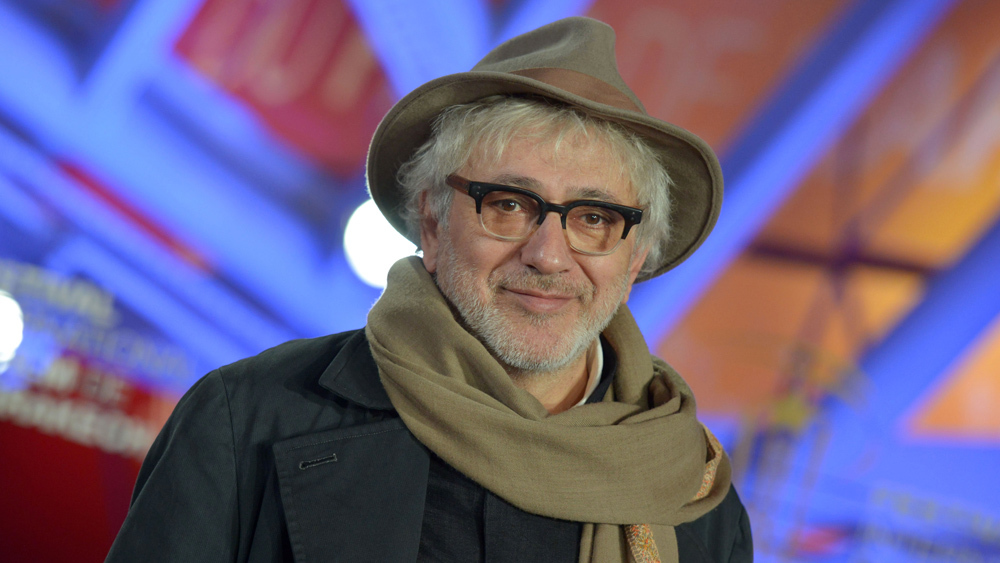“A reader lives a thousand lives before he dies, said Jojen. The man who never reads lives only one”
George R. R. Martin, A Game of Thrones
Tales of wild adventures and intrepid journeys can transport our minds right across the globe, all from the comfort of our own home and never too far from such luxuries as a cup of tea and a flushing toilet – essentially, this is one of the best ways to travel.
So, for anyone who loves to discover the world vicariously from their favourite armchair, this is your travel book bucket list:

AROUND THE WORLD IN 80 DAYS
by Jules Verne, 1872
This classic (and frequently pictorally misrepresented) fictional tale follows upright, punctual and gentlemanly Phileas Fogg and his ex-circus performer manservant Passepartout on a madcap, hair-raising race to circumvent the world in just 80 days. Confident that it can be done, Phileas Fogg makes a high-stakes wager with his acquaintances at the Reform Club. However, as no trip ever goes completely smoothly, the pair quickly discover that while they can catch up lost time on fair-running journeys, precious days can be lost due to weather conditions, transport failures and many a cultural mishap.
“A true Englishman doesn’t joke when he is talking about so serious a thing as a wager”

AROUND THE WORLD IN 80 DAYS
by Michael Palin, 1989
If you’re going to read both, make sure you read this one second as it contains a fair few spoilers! Much loved ex-Python Michael Palin attempted to recreate Phileas Fogg’s journey for a travel documentary and encountered some similar (and some unique) difficulties in his own race around the world. Palin kept notes about his trip alongside the filming, and his book perfectly encaptures the best of every culture he encounters, with considered opinions and thoughtful observations on the subtle nuances of life around the globe – as well as the technicalities behind filming a programme on the move.
[at a football match in Cairo] “Apart from a player questioning whether it was the will of Allah that he be sent off, it’s exactly the same as at home”

THE MOTORCYCLE DIARIES
by Che Guevara, 1993
This book consists of a diary written by a 23-year-old Che Guevara exploring South America with his friend Alberto Granado, aboard a 500cc Norton. It is a heartfelt observation on the philosophy of travel, guided by his own emotions and experiences, and it demonstrates the changes that an individual goes through when they take the time to travel.
“The person who wrote these notes passed away the moment his feet touched Argentina soil. The person who recognises and polished them, me, is no longer. At least I am not the person I once was. All this wandering around “Our America with a capital A” has changed me more than I thought”

THE CYCLIST WHO WENT OUT IN THE COLD
by Tim Moore, 2016
Champion of many an over-ambitious adventure, in his most recent escapade Tim Moore attempts to cycle the length of the Iron Curtain route on an East German shopping bike. Filled with laugh-out-loud scenes and witty comments, alongside serious reflections on the consequences of the Communist dream and reminders of how disparate Europe still remains, this book was difficult to put down.
“In Peep Show terms, Berlin is a city of Jeremys marooned in a nation of Marks.”

WHAT I WAS DOING WHILE YOU WERE BREEDING: A MEMOIR
by Kirstin Newman, 2014
Sick and tired of buying outfits for her friends’ weddings and pretending to croon at their childrens’ baby showers, Kirstin Newman takes off on her own adventures around the world entirely by herself. She falls in love with the world (and many attractive locals along the way) and her memoirs not only inspire you to travel solo yourself, but keep you laughing the whole way as well – after all, she was a writer for TV comedy How I Met Your Mother.
“When you travel, you’re forced to have new thoughts. “Is this alley safe?” “Is this the right bus?” “Was this meat ever a house pet?” It doesn’t even matter what the new thoughts are, it feels so good to just have some variety. And it’s a reboot for your brain. I can feel the neurons making new connections again with new problems to solve, clawing their way back to their nimbler, younger days.”

THE DARK TOURIST
by Dom Joly, 2010
When you think ‘holiday destination’, you probably picture a sandy beach full of palm trees and sun loungers, or a bustling city positively bursting with life and culture. You probably don’t think of the Killing Fields in Cambodia, Skiing in Iran, wandering around North Korea or standing in the spot where a US President was assassinated. But then again, if you find yourself in those parts of the world, you do feel a duty to visit areas of past atrocity, for many a valid reason. Dom Joly explores just this instinct – so-called ‘Dark Tourism’ – and what it is that draws us to visit these places. Not only does he pull it off with a good few laughs in there, but it gives you a lot of food for thought about the places in the world that people rarely write travel books about.
“About a thousand westerners visit North Korea every year – all of them with a state-approved tour group. I loathe travelling in groups, as did all the people who chose to make this trip. The result was a bunch of highly independent travellers on a coach tour. It was hilarious.”

TRAVELS WITH A DONKEY IN THE CEVANNES
by Robert Louis Stevenson, 1879
Determined to raise the money to finance the start of his writing career and depressed about his recent failed love affair with an American woman (several years his senior), a young Robert Louis Stevenson sets off on a 12 day trek across France with a (predictably) stubborn donkey called Modestine. In contrast to his (now famous) fiction, in this memoir, often read as a private love-letter to the woman who had left him, we are given a glimpse into the life and character of the writer, and how the act of travelling itself, without a destination in mind, can serve to settle the mind and body.
“Every book is, in an intimate sense, a circular letter to the friends of him who writes it. They alone take his meaning; they find private messages, assurances of love, and expressions of gratitude, dropped for them in every corner. The public is but a generous patron who defrays the postage.”
“For my part, I travel not to go anywhere, but to go”

AS I WALKED OUT ONE MIDSUMMER MORNING
by Laurie Lee, 1969
Once upon a time, Laurie Lee got up, had breakfast, tucked his violin (wrapped in a blanket) under his arm and started walking from his modest country home to London via Southampton. Rather than your classic gung-ho, mischief-at-every-turn, hair raising adventures, Lee’s writing brings out the beauty in taking in the world slowly, step by step. A true writer by heart, his descriptions are honest and beautiful, and you feel right there with him as he walks his way around the UK and then begins in Spain. To emphasise the lack of any hare-brained scheme, the book doesn’t so much as end as simply run out of words.
“But I think my most lasting impression was still the unhurried dignity and noblesse with which the Spaniard handled his drink. He never gulped, panicked, pleaded with the barman, or let himself be shouted into the street. Drink, for him, was one of the natural privileges of living, rather than the temporary suicide it so often is for others. But then it was lightly taxed here, and there were no licensing laws; and under such conditions one could take one’s time.”

THREE MEN IN A BOAT
by Jerome K Jerome, 1889
One worth knowing perhaps purely for how frequently it crops up in pub quizzes, Jerome K Jerome’s Three Men in a Boat tells the story of Jerome and his two friends embarking on a trip up the Thames for what was expected to be a peaceful holiday. Little did they know that tow ropes, the British weather and tins of pineapple chunks rarely want to play fair. This jaunty tale of simple escapism has been popular since it’s first release in 1889, and their thoughts and grumbles are still instantly identifiable to the reading public today.
“Let your boat of life be light, packed with only what you need – a homely home and simple pleasures, one or two friends, worth the name, someone to love and someone to love you, a cat, a dog, and a pipe or two, enough to eat and enough to wear, and a little more than enough to drink; for thirst is a dangerous thing.”

NOTES FROM A SMALL ISLAND
By Bill Bryson, 1995
To finish off, let us never forget that travelling doesn’t just involve jetting off abroad to the strange and the exotic; one is not a seasoned traveller until they have ticked off their own country. And who better to judge Britain than someone not from here, but who loves the country as his own? Beloved travel writer Bill Bryson had spent neary 20 years on British soil before returning to America, and before departing he embarked on a final farewell tour to capture all that he loved about Britain. In classic Bryson style, this is a witty, charming read that will make you fall in love all over again with your home ground.
“Suddenly, in the space of a moment, I realized what it was that I loved about Britain – which is to say, all of it.”
by Rhiannon Roy, | Source: https://www.timeandleisure.co.uk/






Leave A Comment
You must be logged in to post a comment.